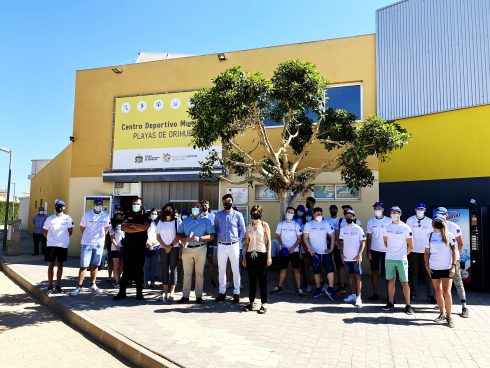ON May 26, Villarreal CF pulled off a stunning upset over Manchester United in the Europa League Final, triumphing in the penalty shootout to claim their first major European title.
Their striking victory in equally striking yellow kits had everyone singing the praises of the so-called “Yellow Submarine.” But how did the club acquire this catchy nickname?
It’s a story of a coincidental changing of kit colours and a famous song by The Beatles, but also that of a club that has risen from their decades-long existence in the lower tiers of Spanish football to etch their name into European football history.
Competitive mens’ football in Villarreal began in 1923, when a handful of local citizens decided to form Club Deportivo Villarreal with the goal of promoting sport in the area.
The founders were, uniquely at the time, keen on promoting women’s football fandom, and they allowed women to attend matches for free, while men were charged .5 pesetas and children .25 pesetas.
For the first twenty-odd years of their existence, the players wore traditional kits: white shirts with black shorts. Yet the stop-start nature of club football in Villarreal was anything but traditional.
The Spanish Civil War in the 1930s forced CD Villarreal to stop competing. The destruction from the war left the club with neither a suitable field nor sufficient funds, and the club dissolved in 1942.
The year 1946 saw CAF Villarreal emerge as the city’s new football team. In 1954, the Board of Directors changed the club’s name to their current moniker, Villarreal Club de Fútbol.
The club’s name was not the only change to their image during this time, as the team changed colours as well. Ahead of the 1947/48 season, so the story goes, the son of the club president traveled to the regional capital, Valencia, to purchase the typical black and white kits, but had to resort to yellow shirts, as they were the only ones in stock.
This change to yellow shirts set the stage for the team’s “Yellow Submarine” nickname.
During the 1967/68 campaign, some fans made the connection between the lyrics of The Beatles’ hit 1966 song “Yellow Submarine” and their teams’ colours, and they began playing the song on a record player during the matches.
Perhaps the new nickname inspired the team’s subsequent successes, as they won promotion to the third division that season, before achieving promotion to the second division for the first time in club history in the 1969/70 season.
After bouncing between the second and third divisions, Villarreal’s fortunes changed for good in 1997, when current president and owner Fernando Roig took over, and the club gained promotion to the first division (La Liga) for the first time.
While they were relegated to the second division the following year, they managed to win promotion again ahead of the 2000/01 season.
Upon returning, the club established itself as a consistent competitor in La Liga. Following a switch to the all-yellow home kit they continue wearing today, they finished third in the 2004/05 season, before reaching their height domestically in the 2007/08 season, when they finished second behind giants Real Madrid.
In the 2011/12 season, Villarreal suffered a shock relegation, despite competing in the Champions League. This turned out to be only a blip, however, as the club won promotion the year after and returned to the top flight, where they have been ever since.
Villarreal’s Europa League triumph capped off years of solid performances in La Liga and European competitions that followed a remarkable rise through the lower ranks of Spanish football.
It also means that despite finishing seventh in La Liga this year, the team have earned a spot in next year’s Champions League. Will the upcoming season bring more European glory for the now infamous Yellow Submarine?
READ ALSO:
- THEY DID IT! Spain’s Villarreal beat Manchester United in Europa League final to win first ever major title
- GIANT KILLERS! But just who are the Yellow Submarine, the team that conquered mighty Manchester Utd?
- FROM PITCH TO PLATE: Spain’s Villarreal football club opens own restaurant in Ceramica stadium
Click here to read more News from The Olive Press.








